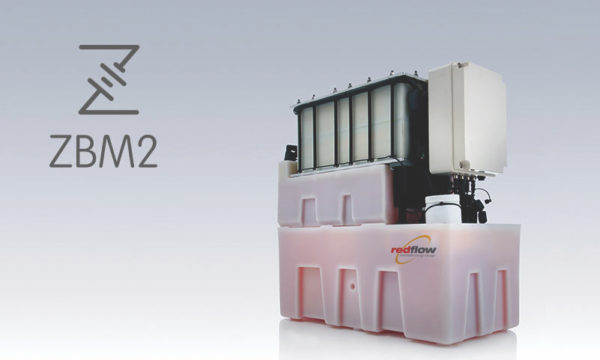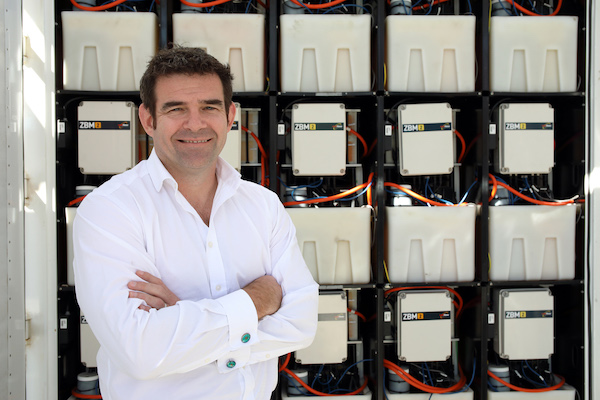Only last month it was reported that Australian energy storage company Redflow, which had seen a growing market acceptance of its zinc-bromine flow battery technology in the last 12 months, had suffered a slowdown in revenue intake due to customer delays. The company reported cash receipts of only $74,000 in the FY2019 final quarter. However, the company always remained optimistic.
Today Redflow has announced that it has won an order to provide 68 ZBM2 zinc-bromine flow batteries for at least 20 mobile phone tower sites in South Africa owned by one of the continent’s largest telecommunication companies.

Image: Redflow
The telecommunication giant chose Redflow after successfully testing its ZBM2 batteries of a proof of concept trial. With deployment set to begin almost immediately, Redflow expects to receive revenue within the calendar year, a great boost to its successful capital raising venture in May which brought in $8.4 million.
The new deal builds on Redflow’s relationship with South African partner, Mobax, which has already supplied 32 Redflow batteries to remotely-located mobile phone towers in South Africa last year.
The runout of Redflow batteries at mobile base stations currently powered by diesel generators will lessen diesel use and in turn provide savings on operational costs, fuel delivery costs and servicing costs. Moreover, after South Africa’s new carbon pollution reduction regulations came into effect on June 1 this year, the reduced diesel use lowers the company’s carbon tax liabilities.
Mobax Chief Operating Officer Maris Van Wyk said Mobax was delighted to extend its partnership with Redflow through wider deployment of the company’s innovative zinc-bromine flow battery technology in South Africa’s telecommunications market. Wyk also noted the “benefits in the South African environment” provided by the ZBM2 battery.
Reflow Managing Director and CEO Tim Harris said this latest South African order demonstrated the value that zinc-bromine flow batteries offered the telecommunications sector internationally. “Energy storage for mobile phone towers is a well-established market globally,” Harris said.
“To date,” continued Harris, “it has faced high operating costs through the use of diesel generators and three-year replacement cycles for lead-acid batteries…our ZBM2 zinc-bromine flow batteries solve these problems, delivering long-life, hard-working energy storage in warm climatic conditions.”
The successful delivery on an order of this size and the companionship of capital endorsement will no doubt boost Redflow as a sustainable alternative to diesel generators worldwide.
This content is protected by copyright and may not be reused. If you want to cooperate with us and would like to reuse some of our content, please contact: editors@pv-magazine.com.









By submitting this form you agree to pv magazine using your data for the purposes of publishing your comment.
Your personal data will only be disclosed or otherwise transmitted to third parties for the purposes of spam filtering or if this is necessary for technical maintenance of the website. Any other transfer to third parties will not take place unless this is justified on the basis of applicable data protection regulations or if pv magazine is legally obliged to do so.
You may revoke this consent at any time with effect for the future, in which case your personal data will be deleted immediately. Otherwise, your data will be deleted if pv magazine has processed your request or the purpose of data storage is fulfilled.
Further information on data privacy can be found in our Data Protection Policy.